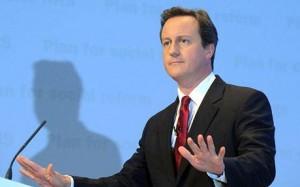African nations are in an uproar after British Prime Minister David Cameron recently threatened to withhold aid to over 41 states which, according to Cameron, are violating the rights of homosexuals. Malawi, Uganda, Nigeria and Ghana are expected to be the first targets of the policy change.
In an interview on BBC TV’s The Andrew Marr Show, Cameron said, “We want to see countries that receive our aid adhering to proper human rights, and that includes how people treat gay and lesbian people. … British aid should have more strings attached in terms of ‘do you persecute people for their faith or their Christianity, or do you persecute people for their sexuality?’ We don’t think that’s acceptable.”
In July, the U.K. withheld $30 million to Malawi after its government punished two men for being homosexuals, jailing them for 14 years with hard labor.
Days before Cameron’s remarks, Uganda voted to reopen debate on a bill which would make homosexuality illegal and, at the extreme, may include the death penalty for gays. The U.K. spent nearly $110 million on bilateral aid to Uganda in 2009-10, according to the Department for International Development’s website.
Cameron said change would not happen overnight, however.
“They are in a different place from us on this issue,” he said. “I think these countries are all on a journey and it’s up to us to try and help them along on that journey.”
This has sparked much anger in African communities, as many have interpreted this as a colonial display of power.
Ugandan presidential adviser John Nagenda told BBC that Ugandans were “tired of these lectures” and should not be treated like “children.” He said that the U.K.’s “bullying mentality … is very wrong. … Those who have more should give to those who have less. It’s as simple as that.”
Kwame Akuffo, a private legal practitioner, has also criticized Cameron over his threat to withhold U.K. aid.
Speaking on Peace FM’s radio broadcast, Akuffo said, “The British government has an extensive relationship with Saudi Arabia, a country that is involved in inhumane acts that the international community considers reprehensible, yet they have not severed off relationship with them because of monetary gains and also because they sell arms to them.”
He argued that every state has its own beliefs and culture, and that to punish a state because they think differently is a stark display of racism.
“We have to respect ourselves,” said Akuffo. “The time has come for us Africans to rise up and protect our rights and dignity as a people. … Let Africa unite on this position for once and fight these oppressive tendencies of the West.”
The Coalition against Homophobia in Ghana said in a statement that “cutting aid to some selected Africa countries due to homophobic laws will not help the LGBT people in these countries, but will rather stigmatize these groups and individuals. LGBT people will be used as scapegoats for government inability to support its citizens and some sectors of the economy.”
It is important to note that Cameron’s threat applies only to one type of bilateral aid, and as such, would not significantly reduce the overall amount of aid to any one state.
“Our new approach, set out in detail in July, means we only provide aid directly to governments when we are satisfied that they share our commitments to reduce poverty, respect human rights, improve public financial management, fight corruption, and promote good governance and transparency,” said Helen Bower, spokesperson for the office of the Prime Minister.
Dr. Paa Kwesi Nduom, Ghana’s presidential candidate, sees this approach as a blessing in disguise.
“You see, David Cameron is telling us that we should stop begging foreigners for survival, but we have not noticed that as a country,” he said, adding that he sees the logic in Cameron’s proposal.
“If you take money from me daily why won’t you adhere to my commands?”

